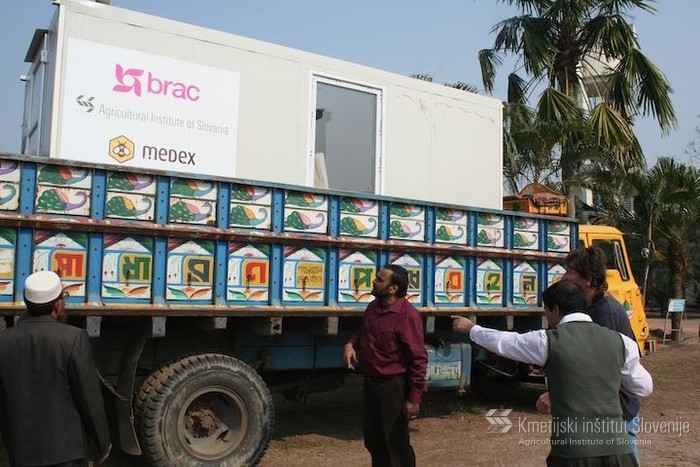On the basis of the Agriculture Act, the Beekeeping Academy of Slovenia (BAS) was founded in 2018 as an Agricultural Institute of Slovenia (AIS) organisational unit. BAS is designed to provide non-formal education in the field of beekeeping to foreigners, educators, and other interested parties. BAS collaborates with educational institutions as well as other legal and natural persons involved in beekeeping in Slovenia and abroad. It is responsible for the joint promotion of Slovenian educational institutions in the field of beekeeping, as well as the dissemination of new knowledge in the national and international context in connection with beekeeping research and development. BAS was founded with the goal of transferring Slovenian beekeeping knowledge, competencies, and practices to other countries.
Head of the BAS
| Name and surname | Valentina Cvjetkovič |
| Contact | valentina.cvjetkovic@kis.si |
| Tasks |
|
PARTICIPATING INSTITUTIONS
Agricultural Institute of Slovenia
https://www.kis.si/

The AIS is the leading research institution in the field of agriculture in Slovenia. It takes a holistic approach to modern agriculture’s problems, expanding its activities to include environmental protection and ecology. It is a public research institute that conducts basic, applied, and development research in agriculture, as well as professional tasks, publishes the results of scientific research, professional, and control work, performs tasks based on authorisations and accreditations, and inspects the quality of agricultural products. The institute also helps farmers, educates young people, and offers agricultural advice to a wide range of people.
The Carniolan bee (Apis mellifera carnica) breeding program is co-executed by the Department of Animal Breedings’ beekeeping group. In collaboration with partners, SBA advises and supports over thirty queen bee breeders. The program is supported by the MAFF. They carry out professional beekeeping tasks in accordance with the Joint Basic Breeding Program in Livestock Breeding, as well as contracts with the Recognised Breeding Organisation in Beekeeping – RBO. The Carniolan bee breeding program has been in place in some form or another for at least thirty years. They strive to keep up with new phenotypic and genomic insights in breeding and selection. The original Carniolan bee pedigree book is maintained by the AIS beekeeping group, which also offers line selection advice. They issue zootechnical documents and conduct direct and queen bee progeny testing.

The group was tasked with developing and implementing a pilot project in Bangladesh to promote beekeeping. The beekeeping project initiative was officially presented in November 2016 at a meeting between the Slovenian state delegation and the BRAC leadership. BRAC was interested in the possibility of developing beekeeping as one of BRAC’s agricultural activities, which, if the project was successful, would be transferred to the level of farmers while creating an integrated value chain. They took a practical approach to planning. Mr. Brane Kozinc, an instructor, experienced beekeeper, and queen bee breeder, was assigned to the field in Bangladesh. The pilot project was successfully completed after two years. One of the most significant findings was among European qualities containing less than 17% moisture. No one could have predicted this outcome at the start of the project. The Bangladeshi side has received enough beekeeping knowledge to enable the BRAC team to carry out essential beekeeping tasks, such as the relocation of the mobile apiary. The realisation that beekeeping, as we know it in Europe, can be replicated in the developing world is also a result.

Ministry of Agriculture, Forestry and Food

ID CARD
| Full title | Agricultural Institute of Slovenia Beekeeping Academy of Slovenia |
| Abbreviation | BAS |
| Address | Agricultural Institute of Slovenia, Hacquetova ulica 17, 1000 Ljubljana, Slovenia |
| Phone | +386 01 280 51 05 |
| Website and email address | https://sca.kis.si/; sca@kis.si |
| Founder | Government of the Republic of Slovenia |
| Activity | Training for BAS program providers; education for groups with an interest; education for countries abroad. |
| Legal basis for the establishment of the Beekeeping Academy of Slovenia | Zakon o kmetijstvu (ZKME-1), Uradni list RS, št. 22/18, 32/19, 49/20 -ZIUZEOP, 54/20, 61/20 – ZIUZEOP-A, 175/20 – ZIUOPDVE 203/20 – ZIUPOPDVE, 15/21 – ZDUOP |
| Head of the BAS | Valentina Cvjetkovič, univ. dipl. kult. in soc. antr. |